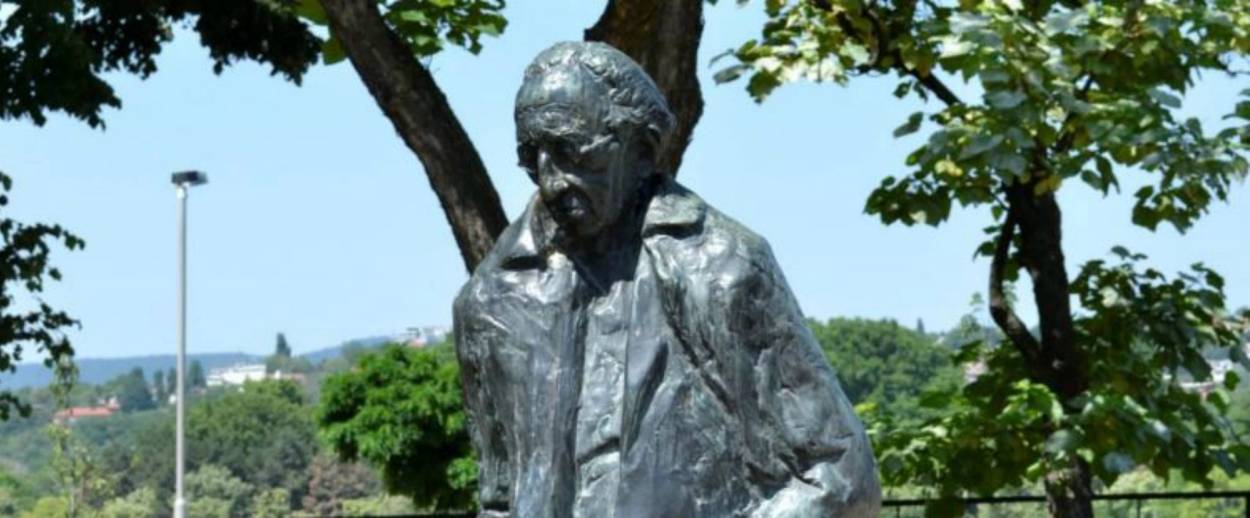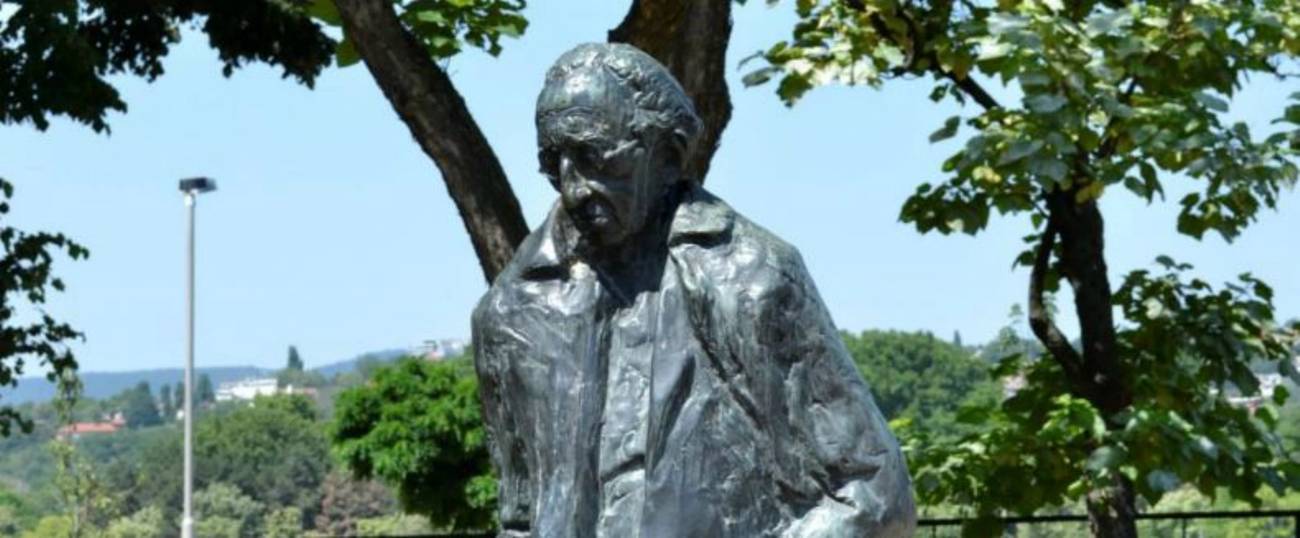Statue of György Lukács in Budapest to Be Removed
The Marxist philosopher’s views do not apparently sync with those of Viktor Orbán’s Hungarian government




The reinvigorated assault by the pro-Trump, right-wing government of Hungarian Prime Minister Viktor Orbán, against what it perceives to be its liberal opposition, is now in the midst of a protracted campaign against symbols of ideological opposition. As part of that effort, the city council of Budapest, which is dominated by Orbán Fidesz party, will reportedly follow through on plans to remove a statue of the renowned Jewish literary critic and Marxist theoretician György Lukács, reported Le Monde.
Lukács is one of the few Marxist literary critics of the interwar period whose work remains influential (and devoid of the dreariness of much doctrinaire Marxist literary criticism). His work inspired a litany of thinkers and writers that ran from Thomas Mann to the Frankfurt school. Lukács was from a bourgeois family, a German-speaking Jewish Hungarian with a taste for Russian novels, and his complex legacy does not fit at all within the framework envisioned by with the new Hungarian nationalism.
The philosopher’s melancholy statue, cast by the well-known sculptor Imre Varga, was removed from Szent István Park, which encompasses the area that included the International Ghetto where a large number of Hungarian Jews had survived in “protected houses.” The statue is due to be replaced by that of Saint Stephen, who founded the Hungarian state a thousand years ago, reported the Hungarian Free Press.
The removal of Lukács statue is symptomatic of the crisis of liberalism that much of Europe currently finds itself facing.
The taking down of the statue Lukács also constitutes the latest salvo in the decades-long “Lukács debate” over the place of the brilliant philosopher within the pantheon of Hungarian history and the way that the Hungarians want to conceptualize the society. The issue of Lukács’s Judaism is also prevalent. Earlier this month, the prominent Hungarian philosopher G. M. Tamás wrote an excellent essay explaining the contours of the ideological conflict in the pages of the Los Angeles Review of Books.
The removal of the statue also dovetails with the government’s campaign to shutter a major university founded by the Hungarian-American financier and philanthropist George Soros. In this way, the astringent anti-Soros agenda of the American Trump right and the European populists have converged. Ironically, it seems that as a young man Prime Minister Viktor Orbán had once himself been the recipient of a Soros grant, which would certainly be evidence of a very bad investment on the part of Mr. Soros. Central European University’s rector is the Canadian public intellectual and politician Michael Ignatieff, who has just published an impassioned public letter defending his institution.
Vladislav Davidzon is Tablet’s European culture correspondent and a Ukrainian-American writer, translator, and critic. He is the Chief Editor of The Odessa Review and a Non-Resident Fellow at the Atlantic Council. He was born in Tashkent, Uzbekistan, and lives in Paris.